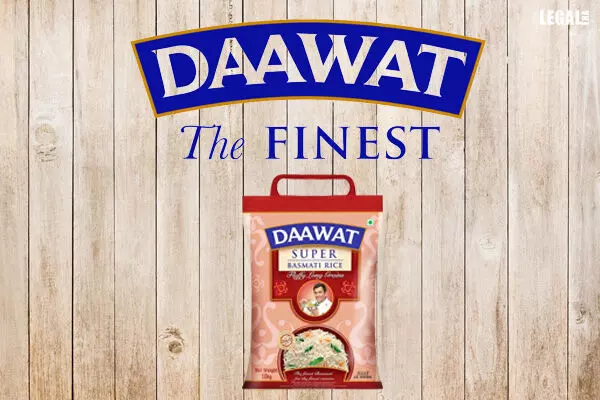- Home
- News
- Articles+
- Aerospace
- Artificial Intelligence
- Agriculture
- Alternate Dispute Resolution
- Arbitration & Mediation
- Banking and Finance
- Bankruptcy
- Book Review
- Bribery & Corruption
- Commercial Litigation
- Competition Law
- Conference Reports
- Consumer Products
- Contract
- Corporate Governance
- Corporate Law
- Covid-19
- Cryptocurrency
- Cybersecurity
- Data Protection
- Defence
- Digital Economy
- E-commerce
- Employment Law
- Energy and Natural Resources
- Entertainment and Sports Law
- Environmental Law
- Environmental, Social, and Governance
- Foreign Direct Investment
- Food and Beverage
- Gaming
- Health Care
- IBC Diaries
- In Focus
- Inclusion & Diversity
- Insurance Law
- Intellectual Property
- International Law
- IP & Tech Era
- Know the Law
- Labour Laws
- Law & Policy and Regulation
- Litigation
- Litigation Funding
- Manufacturing
- Mergers & Acquisitions
- NFTs
- Privacy
- Private Equity
- Project Finance
- Real Estate
- Risk and Compliance
- Student Corner
- Take On Board
- Tax
- Technology Media and Telecom
- Tributes
- Viewpoint
- Zoom In
- Law Firms
- In-House
- Rankings
- E-Magazine
- Legal Era TV
- Events
- Middle East
- Africa
- News
- Articles
- Aerospace
- Artificial Intelligence
- Agriculture
- Alternate Dispute Resolution
- Arbitration & Mediation
- Banking and Finance
- Bankruptcy
- Book Review
- Bribery & Corruption
- Commercial Litigation
- Competition Law
- Conference Reports
- Consumer Products
- Contract
- Corporate Governance
- Corporate Law
- Covid-19
- Cryptocurrency
- Cybersecurity
- Data Protection
- Defence
- Digital Economy
- E-commerce
- Employment Law
- Energy and Natural Resources
- Entertainment and Sports Law
- Environmental Law
- Environmental, Social, and Governance
- Foreign Direct Investment
- Food and Beverage
- Gaming
- Health Care
- IBC Diaries
- In Focus
- Inclusion & Diversity
- Insurance Law
- Intellectual Property
- International Law
- IP & Tech Era
- Know the Law
- Labour Laws
- Law & Policy and Regulation
- Litigation
- Litigation Funding
- Manufacturing
- Mergers & Acquisitions
- NFTs
- Privacy
- Private Equity
- Project Finance
- Real Estate
- Risk and Compliance
- Student Corner
- Take On Board
- Tax
- Technology Media and Telecom
- Tributes
- Viewpoint
- Zoom In
- Law Firms
- In-House
- Rankings
- E-Magazine
- Legal Era TV
- Events
- Middle East
- Africa
Delhi High Court rules in favor of Daawat basmati rice in trademark infringement suit

Delhi High Court rules in favor of Daawat basmati rice in trademark infringement suit
Directs the defendant to pay Rs.25 lakh to LT Foods Limited
In a trademark infringement suit, the Delhi High Court recently awarded Rs.25 lakh in damages and costs to LT Foods Limited, the manufacturer of 'Daawat' basmati rice.
In the LT Foods Limited vs Saraswati Trading Company case, Justice Prathiba M Singh held that the defendant, a Raipur-based seller, clearly indulged in blatant violation of LT Foods' statutory and common law rights in the mark Daawat/Dawat.
The court stated, "Considering that the product rice is for human consumption, the misrepresentation by the defendant that the same is basmati rice is also impermissible."
LT Foods had filed the suit after acquiring the defendant's product in 2021 and noticing that its packaging was identical to its own.
It maintained that owing to the strict quality control standards maintained by the company, the products under the marks Daawat/Dawat attained enormous goodwill and reputation not only in India but in countries across the world. Claiming that the defendant's product was Jawaphool rice, which did not match the standards of the basmati variety, it sought an order of permanent injunction against the respondent, along with damages and costs.
Considering the local commissioner's report and the non-filing of a written statement by the respondent, the court determined that no ex-parte evidence was required.
The court noted that the defendant was using counterfeit packaging identical to the plaintiff's packaging to sell Jawaphool rice while misrepresenting it as basmati rice, rather than simply misusing the brand.
The bench stated, "Considering the plaintiff's reputation and the fact that 'Daawat' is a well-known mark in India, the suit is liable to be decreed."
Holding that the defendant's action was completely contrary to the law and diluted the plaintiff's reputation and goodwill, the court directed the defendant to pay Rs.20 lakh as damages and Rs.5 lakhs as costs to the plaintiff.



